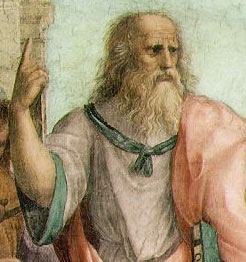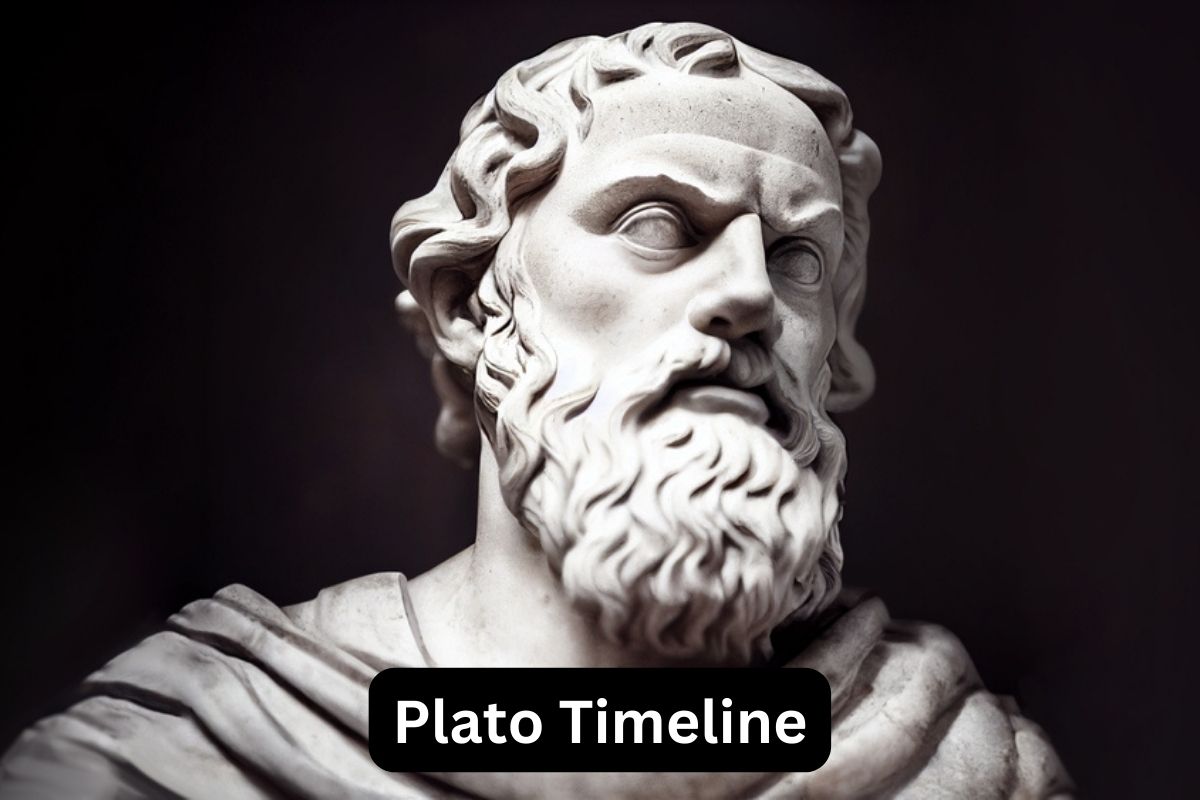Plato (427/428 BC – 347 BC) was an ancient Greek philosopher and one of the most influential figures in the history of Western philosophy. Born into a wealthy and politically active family in Athens, he became a student of the renowned philosopher Socrates in his early adulthood.
Plato went on to establish the Academy, the first institutional school of philosophy in the Western world, where he taught and mentored students for many years.
Known for his profound insights and distinctive method of philosophical inquiry through Socratic dialogue, Plato explored a wide range of topics, including ethics, metaphysics, epistemology, and politics.
His writings, such as “The Republic” and “Phaedrus,” continue to shape philosophical discourse and have a lasting impact on various intellectual disciplines.
Plato’s ideas, including his theory of Forms and his views on the nature of the soul, justice, and education, remain significant in contemporary philosophy and continue to be studied and debated by scholars worldwide.
| Year | Event |
|---|---|
| 427/428 BC | Birth of Plato in Athens, Greece. |
| 407/406 BC | Becomes a student of Socrates. |
| 399 BC | Death of Socrates. |
| 397 BC | Plato’s travels to Italy, Egypt, and perhaps Syria and Libya. |
| 387 BC | Plato founds the Academy in Athens. |
| 380-360 BC | Plato writes most of his famous dialogues, including “The Republic”. |
| 367 BC | Travels to Syracuse to tutor Dionysius II. |
| 360 BC | Returns to Athens and the Academy. |
| 347 BC | Death of Plato. |
Timeline of Plato
427/428 BC – Birth of Plato in Athens, Greece
Plato is born in Athens, Greece. He is believed to come from a prominent and wealthy family. The exact date of his birth is uncertain.

407/406 BC – Becomes a student of Socrates
At the age of around 20, Plato becomes a student of Socrates, a renowned philosopher and influential figure in Athens.
Socrates’ method of questioning and pursuit of knowledge deeply influences Plato’s thinking and shapes his philosophical development.
399 BC – Death of Socrates
Socrates is sentenced to death by the Athenian authorities on charges of impiety and corrupting the youth. This event has a profound impact on Plato, as he witnesses his beloved teacher facing his own mortality with unwavering integrity.
The trial and subsequent execution of Socrates lead Plato to reflect on the nature of justice, the role of philosophy, and the ideal society.
During his time as a student of Socrates, Plato engages in philosophical discussions and debates, along with other notable figures of the time, including Aristippus, Antisthenes, and Xenophon.
These interactions contribute to the formation of his philosophical ideas and the development of his own unique perspective.
397 BC – Plato’s travels to Italy, Egypt, and perhaps Syria and Libya
After the death of Socrates, Plato embarks on a period of travel, seeking knowledge and philosophical insights.
He visits various places, including Italy, where he encounters Pythagorean and Eleatic philosophies, Egypt, where he likely learns about Egyptian religion and mathematics, and possibly Syria and Libya.
These travels expose him to different cultures, ideas, and philosophical systems, broadening his intellectual horizons.

387 BC – Plato founds the Academy in Athens
Plato returns to Athens and establishes the Academy, a school of philosophy named after the park, or grove, dedicated to the hero Academus.
The Academy becomes a center for philosophical inquiry and education, attracting students from Athens and beyond. Plato’s intention is to create a community of thinkers dedicated to the pursuit of knowledge, wisdom, and virtue.
At the Academy, Plato engages in philosophical discussions and teachings, employing his distinctive method of inquiry known as the Socratic dialogue. He encourages his students to question assumptions, critically examine ideas, and engage in rigorous intellectual debate.
The Academy becomes a fertile ground for the exchange of philosophical concepts and the development of Plato’s own ideas.
380-360 BC – Plato writes most of his famous dialogues, including “The Republic”
During this period, Plato produces some of his most significant works. These dialogues, written in the form of conversations between Socrates and various interlocutors, explore a wide range of philosophical topics, including ethics, metaphysics, politics, and the nature of knowledge.
One of his most famous works, “The Republic,” presents his vision of an ideal society governed by philosopher-kings.
Plato’s writings not only convey his philosophical ideas but also serve as a vehicle for conveying his mentor Socrates’ teachings and preserving his legacy. These dialogues continue to be studied and analyzed to this day, providing insights into ancient Greek philosophy and influencing subsequent philosophical traditions.
It is within the Academy’s intellectual atmosphere that Plato nurtures a new generation of thinkers, including prominent figures like Aristotle, who later becomes his most famous student and a renowned philosopher in his own right.
367 BC – Travels to Syracuse to tutor Dionysius II
After his time in Syracuse, Plato returns to Athens and resumes his role at the Academy. He continues to teach, engage in philosophical discourse, and mentor students.
Plato’s return to Athens marks a significant period of productivity and intellectual growth.
360 BC – Returns to Athens and the Academy
Plato’s Academy becomes a prominent institution in Athens, attracting scholars and students from all over Greece. The Academy serves as a hub for philosophical inquiry, scientific exploration, and the pursuit of knowledge.
Plato, as the head of the Academy, shapes the curriculum and guides the intellectual pursuits of its members.
During this time, Plato refines and expands upon his philosophical ideas. He delves into topics such as the theory of Forms, the nature of the soul, the concept of justice, and the role of education in shaping virtuous individuals.
Plato’s dialogues from this period, such as “Phaedrus,” “Symposium,” and “Phaedo,” delve into these philosophical themes and contribute to his legacy as one of the most influential thinkers in Western philosophy.
347 BC – Death of Plato
Plato passes away in Athens at the age of approximately 80. The exact cause of his death is uncertain. Plato’s death marks the end of an era in Greek philosophy and a significant loss to the intellectual community of Athens.
After his death, Plato’s philosophical ideas continue to have a lasting impact. His works are preserved and studied by his students, particularly Aristotle, who further develops and critiques Plato’s ideas.
Plato’s influence extends beyond his immediate followers, shaping the philosophical landscape for centuries to come. His emphasis on rationality, metaphysics, ethics, and political theory lays the foundation for many subsequent philosophical traditions.
